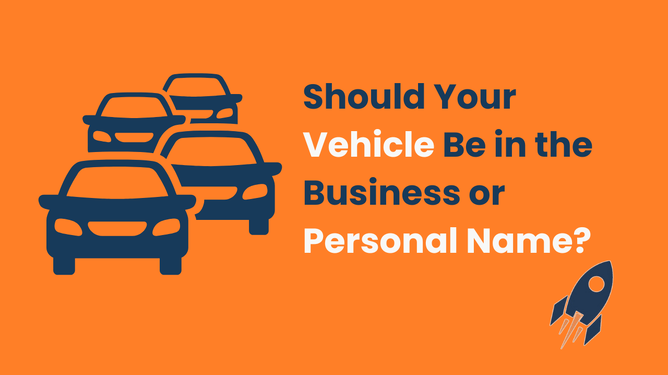Your vehicle might be costing you thousands more in tax than it should.
Most business owners assume it is simple: put the car through the company and claim everything, or keep it private and claim nothing. But that is not the full story. The choice you make now affects your tax, GST, and compliance costs .
Here is the catch:
Buy it in the wrong name and you could be stuck paying fringe benefit tax (FBT)
Keep it personal when it is genuinely a business tool and you are leaving money on the table, missing out on GST, depreciation, and running costs.
Skip the records altogether and you risk IRD attention.
Vehicles are one of the first things IRD looks at in a review. It’s easy pickings
There are four main ways to handle vehicles in business, depending on your business structure.
Logbook method
Track 90 days of usage. Claim the business percentage of fuel, servicing, insurance, and other costs. Works best when business use is minor.Mileage rate method
Forget receipts and claim IRD’s set rate per kilometre (you still need to keep track of every single kilometre travelled for business use). Simple and tidy but limited if the car is used a lot for business.Company ownership with FBT
The company buys the car and claims 100 percent of GST, depreciation, and running costs. You pay back the private benefit through FBT or a shareholder contribution. This is often the most tax-efficient option for higher-value vehicles or cars that are heavily used for business.
For example: A $70,000 vehicle depreciates $21,000 in year one. Even after FBT, you’re still ahead, before considering insurance, fuel, rego, maintenance costs, etc.Keep it personal
If it is really just a family car with the occasional client visit, leave it personal. No admin and no risk. Don’t overcomplicate things.
A good rule of thumb is:
Mostly personal use: stick to logbook or mileage
Core business tool like a ute, van, or sales rep car: company ownership is simplistic and best
About to buy: talk to your accountant first. Once GST is claimed, you cannot just unwind it without repaying GST or depreciation recovery.
Common objections
"FBT sounds like a hassle.” It can be, but in the early years the tax savings often outweigh the cost.
“I do not want to keep a logbook forever.” You do not have to. A 90-day logbook lasts three years.
“What if IRD checks?” That is exactly why you need the right structure. Cars are low-hanging fruit for audits. If it is set up correctly, you are safe.
The bottom line
Your car is not just a vehicle. It is a tax decision.
Handled well, it saves thousands in GST, depreciation, and running costs.
Handled badly, it creates years of extra cost, compliance, and risk.
Next Steps
Before you buy, let’s review your situation. A quick chat could save you thousands and give you confidence your vehicle is set up the smart way.
Contact Us
Contact us today to discuss on 07 827 9130 or email us. Our office is in Cambridge, NZ, but distance is no problem. We have many international and national clients.
This material has been prepared for informational purposes only, and is not intended to provide, and should not be relied on for, tax, legal or accounting advice. You should consult your own tax, legal and accounting advisors before engaging in any transaction.


